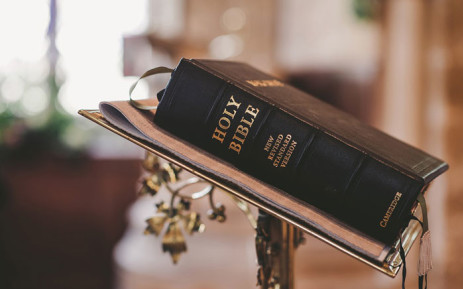
Concerns raised over how places of worship would enforce COVID-19 measures
While religious leaders welcome the decision to partially resume services, not everyone is on board.
by Mia LindequeJOHANNESBURG - With only four days left before level 3 of the lockdown comes into effect, there were concerns about how mosques, churches, and temples would be able to limit the number of worshipers who want to attend services.
On Tuesday evening, President Cyril Ramaphosa announced that the religious sector would now be allowed to hold gatherings, provided the number of people present did not exceed 50.
Worshippers would also have to practice social distancing and wear masks. But it was unclear how places of worship were expected to turn away congregations once the number of people in a gathering reached 50.
While religious leaders welcomed the decision to partially resume services, not everyone was on board.
Bishop TB Ngcobo, the chairperson of God’s Church Must Rise, wanted more people to be allowed into the church building.
“The number is too low because there are churches with more than 1,000 members. This coronavirus is spiritual warfare,” Ngcobo said.
Given that people often arrive spontaneously for prayer services, church gatherings, and other religious rituals - a number of questions remained unanswered.
How would police monitor these religious gatherings? Would worshipers be turned away or rounded up by officers? and would there be a limit when it comes to large families?
Many people were apprehensive about the announcement given what happened recently in Mangaung where dozens of people were infected with COVID-19 at a religious conference held before the lockdown.
The National Command Council was meant to brief the country on Tuesday on further details on alert level 3, but that briefing was postponed for the second time, and in this instance, with no expected date.
MIXED REACTIONS TO ANNOUNCEMENT
While many South Africans celebrated the president’s announcement, others reacted with scepticism and fear that doing so would allow the virus to spread rapidly.
Many religious structures were unable to pay their landlords, some had resorted to online services, and while many others had to forgo centuries-long practices to abide by the lockdown.
“We are adults and we will do things wisely, I’m definitely going to church,” said one man.
“Are we not going to see chaos because of this?” asked a woman.
“We were worried that how come the president could allow alcohol sales but keep churches closed,” another man said.
Ramaphosa called on all regions to participate in a National Day of Prayer against the coronavirus this Sunday.
For official information about COVID-19 from the Department of Health, please click here.